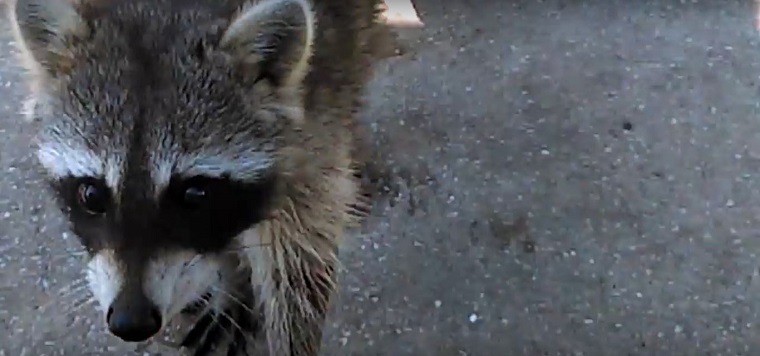|
|
|
|
How to Get a Raccoon Out of Your Attic
Uninvited Guests
If you are reading this text, then we can assume that you have some uninvited guests in the attic
of your home. And those guests are raccoons, are we right? Now, you probably know that raccoons love
invading people’s attics and that there is no chance they would leave attics on their own. This is a
huge problem for house owners that have a Florida raccoon problem in their attic. However, there is a solution
to the raccoons in the attic problem. You can easily get rid of raccoons in your attic if you follow
the steps on how to get rid of raccoons in your attic we will talk about today. Make sure to read this
article thoroughly and you will be prepared to chase those nasty raccoons away from your attic.

Step 1 - Look for Them
The first step to successfully remove the raccoons in your attic is to look for them. The main reason why raccoons
are hanging out in your attic is that they found it as a good place to make a den. Female raccoons especially love
invading attic because they find it as a place in which they can give birth to baby coons. A female raccoon gives
birth to her litter usually from February to April, so if you experience raccoon invasion during these months, you
can be sure that there is a female Florida raccoon in your attic with babies. Once you find the raccoons in your attic and
you see that there are also raccoon young living in your attic, you should know that you must get rid of both the
mom coon and the baby coons. If you leave baby coons in your attic, they will die almost immediately without their
mother. If you are sure that there is a raccoon litter in your attic, then look out for areas in your attic such as
eaves and inside the walls.
Step 2 - Removing Them
This is obviously the most important step in getting rid of raccoons from your attic. If there is a raccoon litter in your
attic, you get rid of it first. You will get rid of Florida raccoon young by wearing thick gloves and putting them in a big pillowcase.
You should wear thick gloves while removing little coons because they can bite as adult raccoons. Once you remove young raccoons,
put them inside a big cage. Now, it is time to get rid of the mom raccoon. Purchase a live raccoon trap and place it in your attic.
Bait the live raccoon trap with marshmallows or with bacon. Regularly check for the trap. If this doesn’t work, you can use baby
coons as bait. Release the raccoons in the wild or call wildlife experts to handle that.
Step 3 - Clean Up Your Attic
You will probably feel relieved once you get rid of your raccoon guests. However, you should know that there are still a few things
to take care of once you get rid of your coons. The main thing you should do after getting rid of your coon guests is to clean up
your attic. We recommend you to call a wildlife service to clean your attic after Florida raccoons because you could easily get infected with
various diseases raccoon waste carries.
Step 4 - Attic Decontamination
Although it is easy for you or for a wildlife expert to remove raccoon poop, it is hard to get rid of raccoon poop since it soaks into
your attic. This is why you should order a wildlife professional to decontaminate your attic after cleaning it up. A wildlife professional
will most likely decontaminate your attic with various decontamination sprays and liquids.
Step 5 - Repair the Damage
Once your attic becomes free of Florida raccoons and their waste, you should repair any type of damage in your attic cause by raccoons.
You should also seal up all entry holes in your attic through which new raccoons could get in.
We service the following areas:
Boca Raton,
Bradenton,
Cape Coral,
Fort Myers,
Fort Lauderdale,
Gainesville,
Jacksonville,
Lakeland,
Melbourne,
Miami,
Naples,
Ocala,
Port Saint Lucie,
Saint Augustine,
Sarasota,
Tampa, and
West Palm Beach
|
| © 2001-2018 floridawildlifecontrol.com - site content, photos, & maintenance by Florida Wildlife Control, all rights reserved. |
| | |